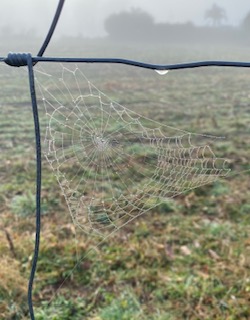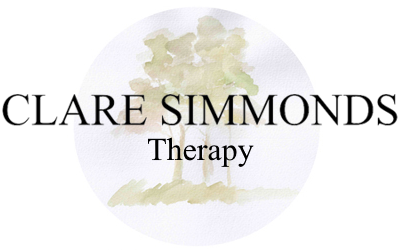The serious art of dreaming

Most of us are interested in the dreams we have at night, intuiting that although they ‘speak’ in a very different language to our conscious thought, they hold a potent wisdom. Our daydreams, on the other hand, tend to be viewed as of lesser importance—and maybe even denigrated as a time-wasting activity, taking us away from ‘real work’ of thinking and being present in the world.
Over the course of his career, the psychoanalyst Wilfred Bion (1897-1979) developed a theory about the significance of dreaming that counters a view of it as inferior to thinking. Rather than dreams being a whimsical ‘added extra’ to the realm of conscious thought, Bion saw dreaming as the substratum of our ability to think, and to be awake to the world around us. For Bion (1962), both daydreams and night dreams were of equal importance to keeping us well, psychologically and physically. He viewed dreaming as a free-floating state of mind that is always running in the background, and that it is via this reverie that we are able to process the multitudes of bodily sensations and emotional paraphernalia that we gather as we go about our daily lives.
A central aspect of dreaming that helps us to process experience is the way it protects our consciousness from being invaded by elements that belong in the unconscious, as well as shielding our unconscious from being subjected to the organizing functions and straight lines that are dominant in our conscious mind. Dreaming, in other words, continuously works to maintain the all-important contact barrier between our conscious and unconscious. As Abel-Hirsch (2023, p. 52) puts it, “Bion is suggesting that “dreaming” while awake allows us to be “asleep” to unconscious elements that would disrupt our conscious mind”. In myth, our conscious mind is often represented as the earth, and the unconscious as the sea. Building on this symbolic representation, the liminal zone of dreaming could be viewed as akin to the seashore standing between a sea of unconsciousness and a land of consciousness. Like dreaming, the seashore is a dynamic zone, one that both protects and connects the land and the sea; its presence stops the land from being flooded by the sea, as well as ensuring that the sea is not intruded upon and overtaken by the dry land.
Bion’s theory of dreaming as the bedrock of thought, and to our ability to be awake, is important. One implication of his theory is that we could give more attention to ways in which we foster this free-floating state of mind in our daily lives. We could, for instance, ask ourselves how often we unhook our minds from well-worn habitual grooves of thinking, to let them fly on the wind of imagination. We could also pay closer attention to the kinds of activities that feed our dreaming states.
I suspect that the way we each cultivate the reverie of dreaming is an individual matter. Some may more readily achieve this state of mind when on a run or a walk. Others might find that listening to music, creative writing, or gazing out the window at the landscape stimulates a day-dream. What seems similar in the kinds of activities that promote dreaming is that there is space within them for a kind of imaginative musing. So perhaps, just as much as we need to consider activities that help us achieve this state of mind, we also need to evaluate the activities that might impede it. The way that smartphones so easily can be used to fill up any spaces in our day with entertainment could be viewed as impeding our ability to dream, and thus to be awake. If we accept Bion’s theory about the centrality of dreaming to our well-being, we perhaps need to consider our dreams to be a serious art, and that whenever and wherever possible, we actively seek ways to feed them, and to let them take flight.
Abel-Hirsch, N. (2023). Bion: an Introduction. Oxfordshire : Phoenix Publishing House
Bion, W. R. (1962). Learning from Experience. London: Heinemann.
Previous Blog Posts
-
Coping with anxiety at a time of crisis
From time to time, most of us struggle with anxiety. Unexpected and unwanted things happen, and we can become very challenged in making sense of this interruption into the daily pattern of life. Surprising events churn up feelings that we may find very confronting, and anxiety can act as a kind of ‘psychological static’ that masks […]
-
Demystifying therapy
Whilst there has been much more talk about mental health in the media in the last few years, telling others that one ‘goes to a therapist’ tends to be something that we shy away from, as if there is something embarrassing about needing the help of another to make sense of our struggles. It seems […]
-
Book review ‘When Breath Becomes Air’ by Paul Kalanithi
The title of this review could be ‘Why we all need to read more books about death’. This is because a book like Paul Kalanithi’s reflective journey, following a diagnosis of incurable lung cancer, is a poignant reminder that when we lose sight of our mortality, we can also too easily lose sight of what […]
-
Transitions in parenting
Whatever the stage of parenting one is at, there is a plethora of (often conflicting) advice out there about how best to go about it. The maxim goes that we write about what troubles us: if this is the case, then clearly parenting is something that bothers a lot of us. Becoming responsible for a […]
-
Are we all addicted to something?
Addiction is a word that causes great fear—to be addicted indicates a compulsive need or drive towards something that promises good feelings but actually, over time as a habitual pattern develops, causes the addicted person great harm. In the past, addiction tended to be viewed as a moral weakness, experienced by some people in society: […]
-
Shadow and creativity
There is no light without shadow and no psychic wholeness without imperfection. To round itself out, life calls not for perfection but for completeness; and for this the “thorn in the flesh” is needed, the suffering of defects without which there is no progress and no ascent. (C.G Jung, Collected Works, Volume 12, para 208). […]
-
A review of “One! Hundred! Demons!” by Lynda Barry
The English-speaking world has been a bit slow on the uptake regarding graphic novels. If you go into a bookshop in France, on the other hand, you will find a huge variety of graphic novels and comics in multiple genres, for all ages. The selection in the UK is getting much better, although I still […]
-
Why we all need to walk on the wild side
Most of us have had the experience of getting outside into the natural environment—whether that is into the garden, to the local park or to the woods—and feeling a lot better as a result. The benefit of spending time in the outdoors is something that many people have commented on over the ages. John Muir, […]
-
A Review of ‘The Antidote’ by Oliver Burkeman
As a student, I once babysat for a local couple. I recall the experience as bemusing, for almost every available surface in the small house was covered with sticky notes on which were written rousing motivational slogans. It felt rather spooky walking about the house, and encountering endless exhortations. I still recall the one on […]
-
Fleeing from boredom
The unpleasant feeling we get when bored, of being in some kind of empty space where time stretches endlessly forwards, is captured well in Charles Simic’s poem: TO BOREDOM By Charles Simic I’m the child of your rainy Sundays. I watched time crawl Over the ceiling Like a wounded fly. A day would last forever, […]
-
Mindfulness
Mindfulness, a therapeutic practice with its roots in meditation, is increasingly being promoted as a means of achieving a range of health benefits—both physical and psychological. Essentially, mindfulness is a state of being, achieved by focusing attention on the present moment, observing, accepting and then letting go of any emerging thoughts, feelings, and bodily […]
-
Exploring the roots of procrastination
We all have times in our lives when we have a task to do, yet find ourselves busily engaging in anything but that task. This is not always a negative thing. When compared to pre-crastination (compulsively completing tasks as soon as possible) procrastination can sometimes be a positive process, slowing us down and allowing more […]
-
When good changes stir up difficult feelings
We all go through adjustments and transitions in our lives and are constantly adapting to these changes. Some of these changes we expect to find stressful. Going through a relationship break-up, experiencing the death of someone close to us or losing our job are examples of difficult changes we encounter at various points in lives and […]
-
What is anxiety, and is it really on the increase?
Anxiety is a word that we use to describe a plethora of feelings—ranging from milder and transient ‘keyed up’ mindsets through to more long-lasting and unbearable states of panic. At the milder end of this spectrum, anxiety can be seen as a frame of mind that prepares us for action. At the severe end, anxiety […]
